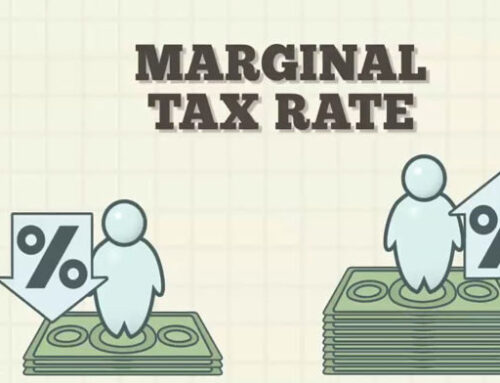As industries continue to evolve, so do the practices within them. Compilation engagements, essential in the realm of financial reporting, are no exception. In this blog post, we’ll peer into the future of compilation engagements, exploring emerging trends, technological advancements, and how accountants can prepare for the changes ahead.
Future of Compilation Engagements: Automation and Artificial Intelligence
Automation and artificial intelligence (AI) are set to play a transformative role in compilation engagements. AI-driven tools can facilitate data entry, verify consistency, and even identify potential errors or anomalies in financial data. Accountants will be able to focus more on analysis and interpretation, enhancing the overall quality of the engagement.
Enhanced Data Analytics:
With the rise of big data and advanced analytics, compilation engagements will likely incorporate more in-depth data analysis. Accountants can use analytics to identify trends, make predictions, and provide valuable insights to businesses beyond traditional financial reporting.
Blockchain Technology and Transparency:
Blockchain technology has the potential to revolutionize compilation engagements by providing an immutable and transparent ledger. Financial data recorded on a blockchain can enhance the trustworthiness of the information presented in future of compilation engagements and reduce the risk of fraud or manipulation.

Case Study:
A Global Financial Services Firm Consider a global financial services firm undergoing a compilation engagement. With the integration of AI-powered tools, the firm’s accountants can compile financial data from various international branches efficiently and accurately. Additionally, blockchain technology ensures that the financial statements are tamper-proof, fostering transparency and building confidence among stakeholders.
The future of compilation engagements is set to be shaped by automation, AI, advanced analytics, and blockchain technology. Accountants who embrace these trends and adapt to technological advancements will be better equipped to provide high-quality, accurate, and transparent compilation engagements that meet the evolving needs of businesses and stakeholders.
The Role of Compilation Engagements in Due Diligence
Due diligence investigations are critical when making business decisions such as mergers, acquisitions, or investments. Compilation engagements play a pivotal role in these investigations, future of compilation engagements, offering a comprehensive overview of a company’s financial health. In this blog post, we’ll explore how compilation engagements contribute to due diligence, their benefits, and their limitations.
Unveiling the Financial Landscape for Engagements in Due Diligence:
During due diligence investigations, potential buyers or investors seek a clear understanding of the target company’s financial position. Compilation engagements provide the necessary financial statements, disclosures, and notes, presenting a comprehensive view of the company’s assets, liabilities, and overall performance.
Identifying Red Flags:
Compilation engagements are valuable tools for identifying potential red flags or inconsistencies in financial data. While these engagements do not provide assurance, they allow the investigation team to spot anomalies that might warrant further investigation or negotiation during the due diligence process.
Also read: Compilation Engagements in Small Business Reporting in 2024
Cost-Effectiveness and Efficiency:
In the context of due diligence, comprehensive audits or reviews might be impractical due to time and cost constraints. Future of compilation engagements offer a cost-effective and efficient alternative, allowing the investigation team to obtain a structured representation of the target company’s financials without the extensive procedures of an audit.

Case Study:
M&A Due Diligence Imagine a tech company planning to acquire a smaller startup. To ensure a successful acquisition, the tech company’s due diligence team engages in a compilation engagement with the startup. The compilation engagement provides clear financial statements, highlighting the startup’s assets and liabilities. The team identifies a discrepancy in reported assets, prompting them to delve deeper into the startup’s intellectual property rights.
Future of compilation engagements have a significant role to play in due diligence investigations, providing a snapshot of a company’s financial health, identifying potential issues, and offering a cost-effective solution. While they lack the comprehensive assurance of audits, compilation engagements serve as a valuable tool for informed decision-making in business transactions.
The Art of Effective Communication in Compilation Engagements
While compilation engagements primarily involve presenting financial information, effective communication is at the heart of their success. In this blog post, we will delve into the crucial role communication plays in compilation engagements, exploring how accountants ensure clarity, accuracy, and transparency when presenting financial data.
Effective Communication in Compilation Engagements: Clear Presentation of Financial Information
The essence of a successful compilation engagement lies in the accountant’s ability to present complex financial data in a clear and understandable manner for future of compilation engagements. This requires organizing financial statements, notes, and disclosures in a way that allows users to grasp the company’s financial position and performance without confusion.
Tailoring to the Target Audience:
Different stakeholders have varying levels of financial literacy and specific interests. Accountants must understand the target audience of the compiled financial statements and tailor the presentation accordingly. For instance, if the statements are meant for potential investors, the emphasis might be on growth opportunities and financial stability, whereas creditors might focus more on liquidity and debt obligations.
Also read: Compilation Engagements: A Bridge to Financial Transparency
Maintaining Transparency:
While compilation engagements do not provide assurance, maintaining transparency is paramount. Accountants should clearly communicate the limitations the future of compilation engagements, making it evident that the financial future of compilation engagements information has not been verified for accuracy or completeness. Transparency builds trust and helps stakeholders understand the nature of the presented data.
Illustrative Example:
A Nonprofit’s Donor Report Imagine a nonprofit organization seeking to communicate its financial health to donors and supporters. By undergoing a compilation engagement, the nonprofit can ensure that its financial statements clearly outline revenue sources, program expenses, and administrative costs. The presentation of financial information with transparency enhances donor confidence and encourages continued support.
Conclusion:
Communication is the cornerstone of Compilation Engagements in Chatham, as it bridges the gap between financial data and stakeholders’ understanding. Accountants play a pivotal role in ensuring that financial information is presented clearly, tailored to the intended audience, and accompanied by the necessary context to maintain transparency. Through effective communication, compilation engagements fulfill their purpose of presenting financial data in a meaningful way.
Recent Posts
FAQ
How can blockchain technology impact compilation engagements?
Blockchain technology has the potential to revolutionize compilation engagements by offering an immutable and transparent ledger. This can enhance trust in the presented information and mitigate the risk of fraud or manipulation.




